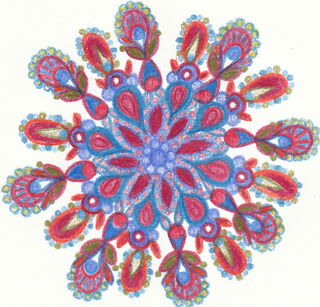Resilience
A Perspective That Promotes Resilience
An internal locus of control is a source of abiding strength.
Posted July 19, 2022 Reviewed by Ekua Hagan
Key points
- Having an internal locus of control is linked to a sense of personal accountability, motivation, and hope.
- Intentionally shifting one's perspective has the ability to lift mood, but to make it permanent requires commitment.
- Developing an internal locus of control promotes resilience.
Caroline Barron, a junior in the Humanities Honors Program at the University of Texas at Austin, is the co-author of this blog.

Researchers cited in this post have discovered a perspective that is associated with resilience in children who have managed adversity and continued to thrive: internal locus of control, or ILC.
Adverse events can feel more manageable with ILC. ILC involves having a sense of personal agency and control as opposed to feeling that one is helpless or hapless. ILC is also linked to a rational sense of personal accountability and a sense of motivation and hope. Many people are debilitated by inner distortions that make them feel excessively or inappropriately guilty. Those with ILC are able to know when “It’s not me” and maintain the belief that they can have an impact.
Altering one's perspective
How do you alter your perspective to achieve ILC if it does not come naturally to you? Studies show that two weeks of a deliberate, daily refocusing practice makes a difference. For example, shifting your emotional attention to something for which you are grateful or to positive outcomes in which you played a part lifts mood, according to positive psychology researcher Dr. Martin Seligman. Intentional perspective change involves a similar process. Identify your internal loci of control by noting your areas of effectiveness, maintaining your vision, and clarifying the steps you can take or did take, however small, to influence the desired outcome. Believing that small actions matter is part of the process.
A shift in perspective to believe that one has agency or an ILC is a simple idea. To truly live it, own it, and make it permanent requires a psychological commitment. One may need training or support from a friend or professional. I once heard Dr. Aaron Beck, the father of cognitive therapy, say that in the early days of his practice and compared to his 1950s psychoanalytic colleagues, he had frequent openings. Once people learned to change their perspectives, which took weeks or months and a couple of sessions per week, as opposed to years of four-day per week treatment in psychoanalysis, they didn’t need him anymore. The very act of intentional perspective change is one manifestation of ILC.
An altered view about self and world comes more easily to some than to others. Perhaps we are rigid. Maybe we want to cling to the negative. Cognitive-behavioral interventions work well for many individuals, but insight-oriented psychodynamic therapy may be better for those who crave or need deeper conversation, connection, and exploration to move forward. Psychodynamic psychotherapy is about removing layers of affectations and personas that developed in childhood as a form of protection but are no longer useful. The purpose is to free a vitalized self by creating a situation wherein it can unfold, emerge, and stay in play.
If one is generally slightly depressed or pessimistic, an ILC perspective, which is intrinsically optimistic, may be uncovered as opposed to learned. In other words, one may naturally possess more of a sense of agency, hope, and relatability than one knows. Duress during development may interfere with the natural unfolding of a sense of optimism, agency, and pro-social behavior. (The capacity to connect with others and maintain continuity is a well-described, well-lived life factor, even if it is just a couple of like-minded souls.) Whether you naturally have it, or you want to learn and develop it, ILC is a life perspective that promotes resilience. It can be an abiding source of internal strength.


